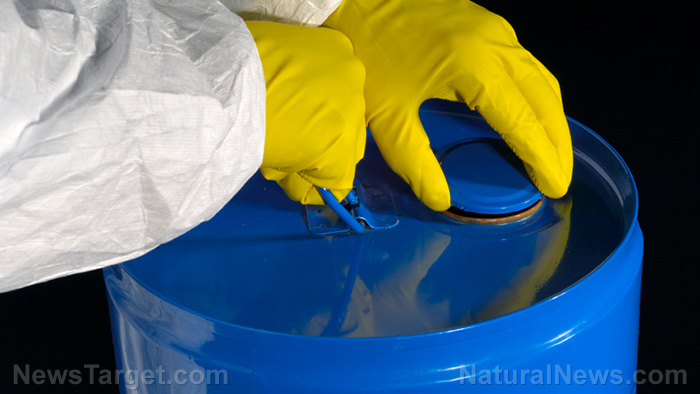Drums of hydrochloric acid were found dumped in the ocean, at a location with sensitive biodiversity
05/02/2018 / By Edsel Cook

On the lookout for killer whales in the famous Bremer Canyon area of Western Australia, marine wildlife researcher Rebecca Wellard stumbled across an appalling sight: A trio of plastic drums used for hydrochloric acid storage, bobbing in the bio-diverse waters of the marine reserve, reported The West Australian.
The drums were still intact when Wellard reeled them into her boat. Each could hold 200 liters of caustic liquids. One was reported to still hold a small amount of hydrocholic acid.
“I have never seen waste disregarded and disposed of like that,” says the Curtin University researcher. “Every vessel out there on the ocean not only has to meet legal requirements, but has a duty of care.”
A few days later, a fourth drum was discovered in the same area. The two incidents have been reported to the proper authorities.
Wellard came to Bremer Canyon in 2014 to study the vocalizations and population of the killer whales that visited the area every year. She says that plastic pollution is the greatest threat to the ocean and marine life.
Drums like the one she recovered might be comprised of sturdy material, but they contribute to the mess all the same. She points out that plastics do not break down into less harmful substances.
Instead, they break up into smaller fragments called microplastics that can injure or kill any marine animal that mistakes them for food. Over time, these plastic pollutants gather together to form massive trash islands.
Wellard also expresses concern about the hydrochloric acid that may have entered Bremer Canyon’s delicate marine ecosystem. The acid is just one of the many man-made chemicals that have contaminated practically all marine organisms.

Other common water pollutants are pesticides and petroleum-based chemicals found in consumer products. While nowhere as corrosive as hydrochloric acid, they’re toxic in their own special ways. (Related: No longer Texas-sized, trash islands in our oceans are now the size of Mexico – and growing at an alarming rate.)
Deep-water fossil fuel deposits responsible for Bremer Canyon biodiversity
Since the 1700s, the deep waters off the southern coast of Western Australia have been known to host large populations of diverse species of squid and the animals that preyed upon them. Sperm whales, killer whales, tuna, and sharks are just some of the marine animals that regularly frequented the region.
While studying aerial photos of the seasonal marine buffet, researchers with the Bremer Canyon Project noticed large swathes of darker water that drew the feasting animals. They determined that the swathes were phytoplankton blooms.
The researchers obtained data from NASA’s Moderate Resolution Imaging Spectroradiometer (MODIS) satellite that suggested that the phytoplankton could be getting nutrition from a mysterious source in deeper waters.
In 2004, an Australian government agency identified possible fossil fuel deposits in the area. Their findings were confirmed in 2009 by an oil and natural gas explorer that performed seismic studies of the seafloor.
Norwegian researcher Martin Hovland suggests these deep-water oil and gas deposits are leaking light hydrocarbons like methane, propane, and butane. The hydrocarbons head towards the surface, where bacterial action breaks them down into nitrogen.
The influx of so many nutrients causes phytoplankton populations to explode. Animals that feed on these tiny plants gather towards such blooms, followed by their predators, which explains the seasonal visits by all manner of life.
While there are dozens of underwater canyons along the continental shelf edge of Western Australia, none can boast the diversity of Bremer Canyon, which lies on top of a very large deposit of oil and gas. The area is part of the Bremer Commonwealth Marine Reserve.
Read more about plastics pollution in bodies of water at Ecology.news.
Sources include:
Submit a correction >>
Tagged Under:
This article may contain statements that reflect the opinion of the author





















